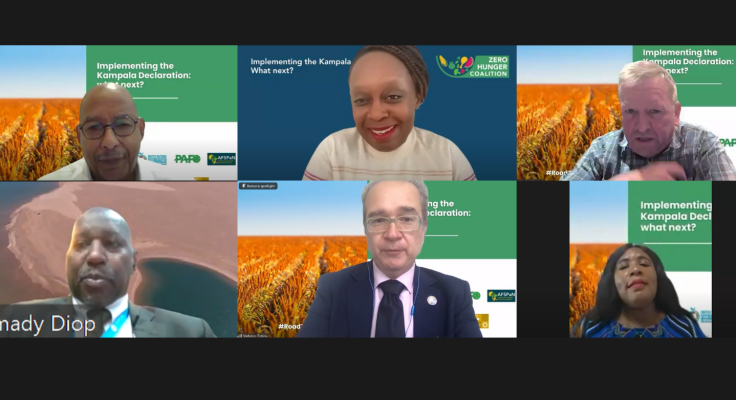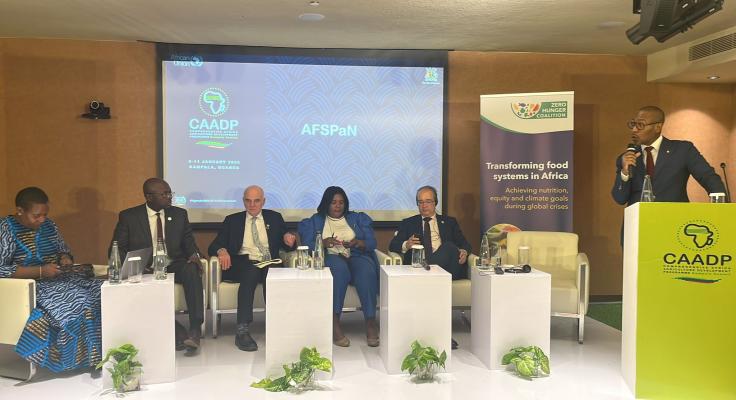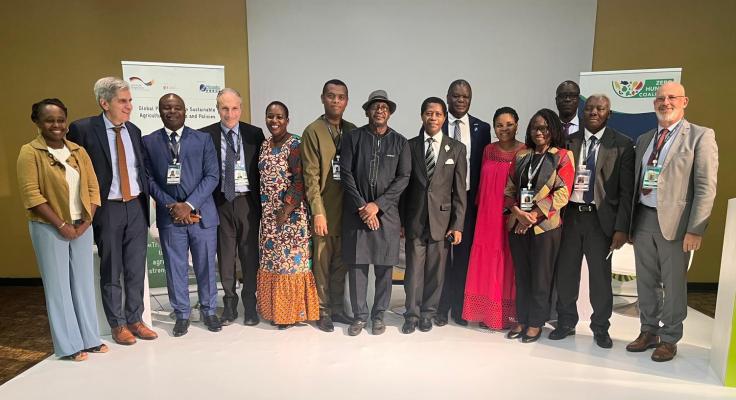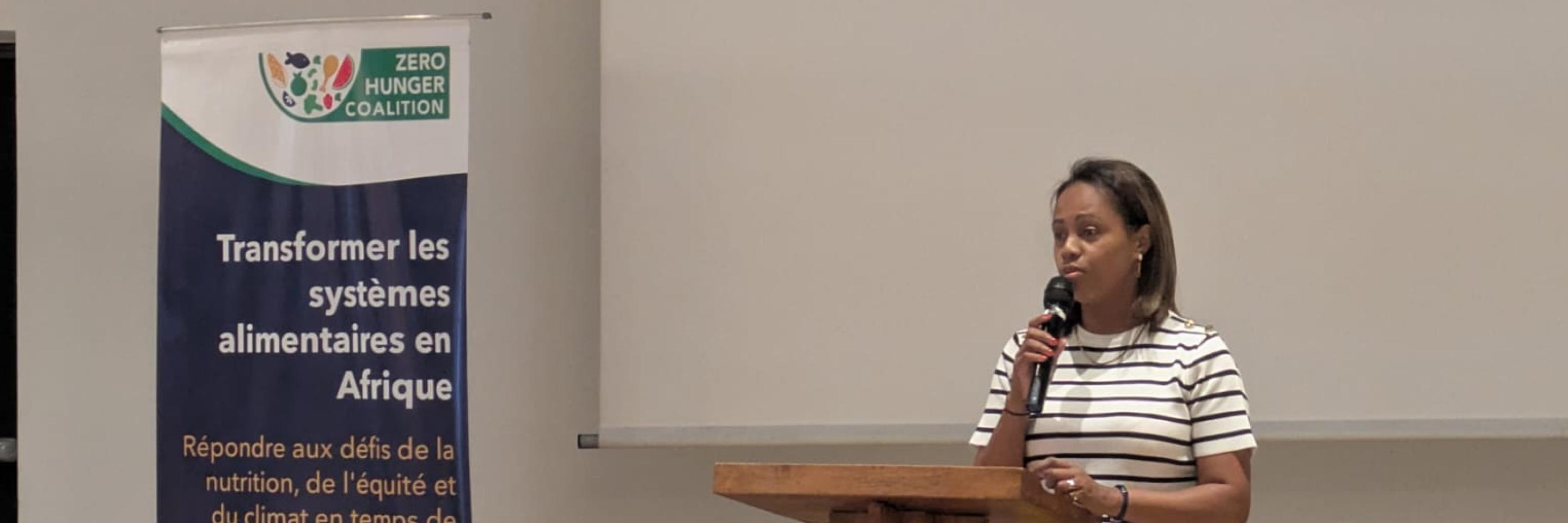
Mission to Madagascar: Day 3
The Zero Hunger Coalition is currently in Madagascar supporting the finalization of the country's Action Plan for the operationalization of its National Roadmap for Food System Transformation. The ZHC is joined by a delegation from Benin and the Democratic Republic of the Congo as part of the Coalition’s platform promoting South-South dialogues.
Participants in this mission include representatives from the United Nations (FAO, UNICEF, WFP, UN mission in Madagascar, food system transformation taskforce members from Benin, the Democratic Republic of the Congo (DRC) and Madagascar, development agencies (GIZ), NGOs (GAIN and the Shamba Centre for Food & Climate) under the aegis of the Ministry of Agriculture and Livestock and the Zero Hunger Coalition.
DAY 3 - Contributing to the Action Plan: from planning to action
While the previous day introduced the Action Plan objectives and defined the indicators to be achieved, today participants made commitments to be included in the plan. These commitments aligned with the three axes of the National Roadmap:
- Axis 1: Promoting access to healthy, diverse and nutritious diets
- Axis 2: Promoting governance that supports equitable and resilient livelihoods
- Axis 3: Promoting resilient production given climate change to ensure the sustainable use of natural resources
The day started with three presentations that provided examples of projects contributing to each of the axes.
Axis 1 and Axis 3: Study results on the benefits of combining rice and fish farming
Olivier Joffre (GIZ) presented the results of a study that examined four types of aquaculture practices: one that combined rice and fish farming (extensive model) and three that farmed fish in nets cages, man-made ponds or tanks (intensive models). And what did it find?
Extensive rice/fish farming offered the lowest costs when factoring in environmental and social impact. Compared with extensive rice/fish farming, intensive fish farming had higher construction costs, more inputs costs (for feed and energy) and a greater impact on the environment. However, extensive rice/fish farming had higher labour costs.
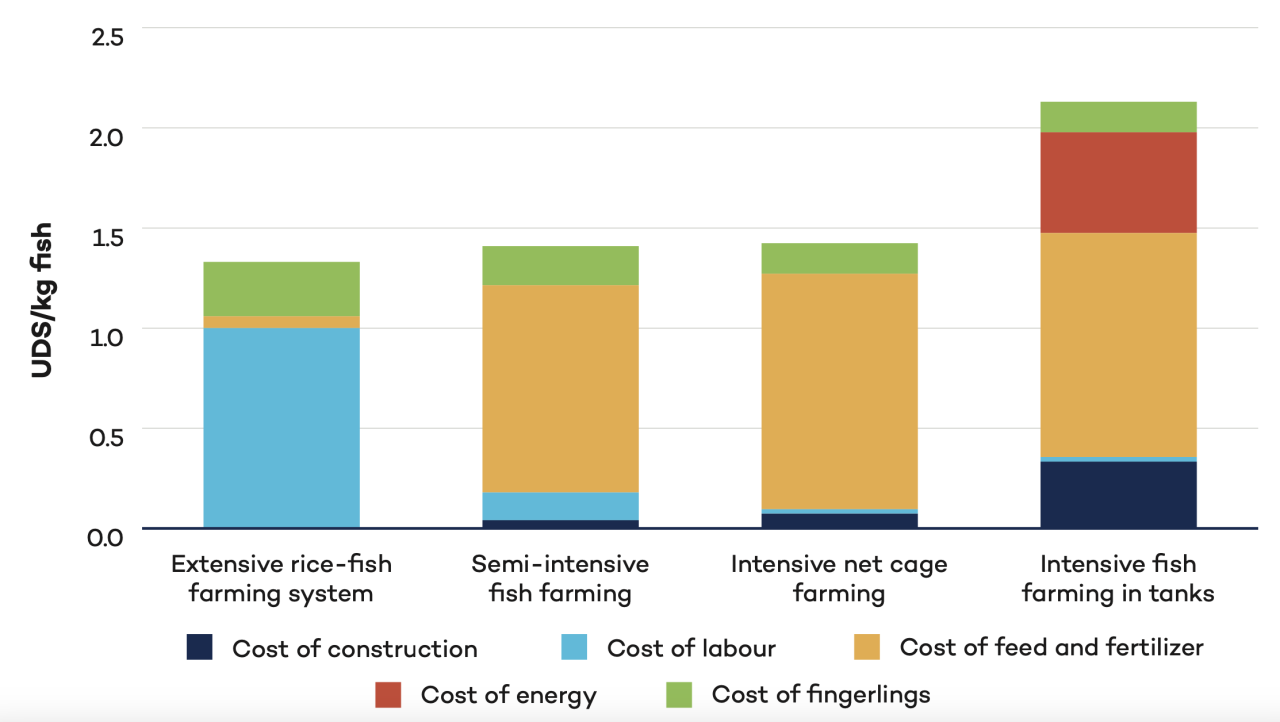
According to Mr Joffre, “The combination of fish farming and rice farming can maximize production while supporting local economies and environmental resilience. It reinforces food security and rural employment.”
Axis 2: PARM - an innovative platform for managing agricultural risk
According to Francesca Nugnes (IFAD), the Platform for Agricultural Risk Management (PARM) seeks to reinforce the resilience of smallholder farmers in Madagascar - and in particular women, youth and the most vulnerable - by providing them with solutions to manage agricultural and environmental risks.
It does so by offering technical assistance, innovations and investments. This includes improved access to tools for production and food sovereignty (high quality seeds, fertilizer, promote agroecology), improved competitiveness and opportunities along the value chain (development of financial services, leverage funding, aggregating small producers), and developing a favourable environment for investment (information services, capacity building)
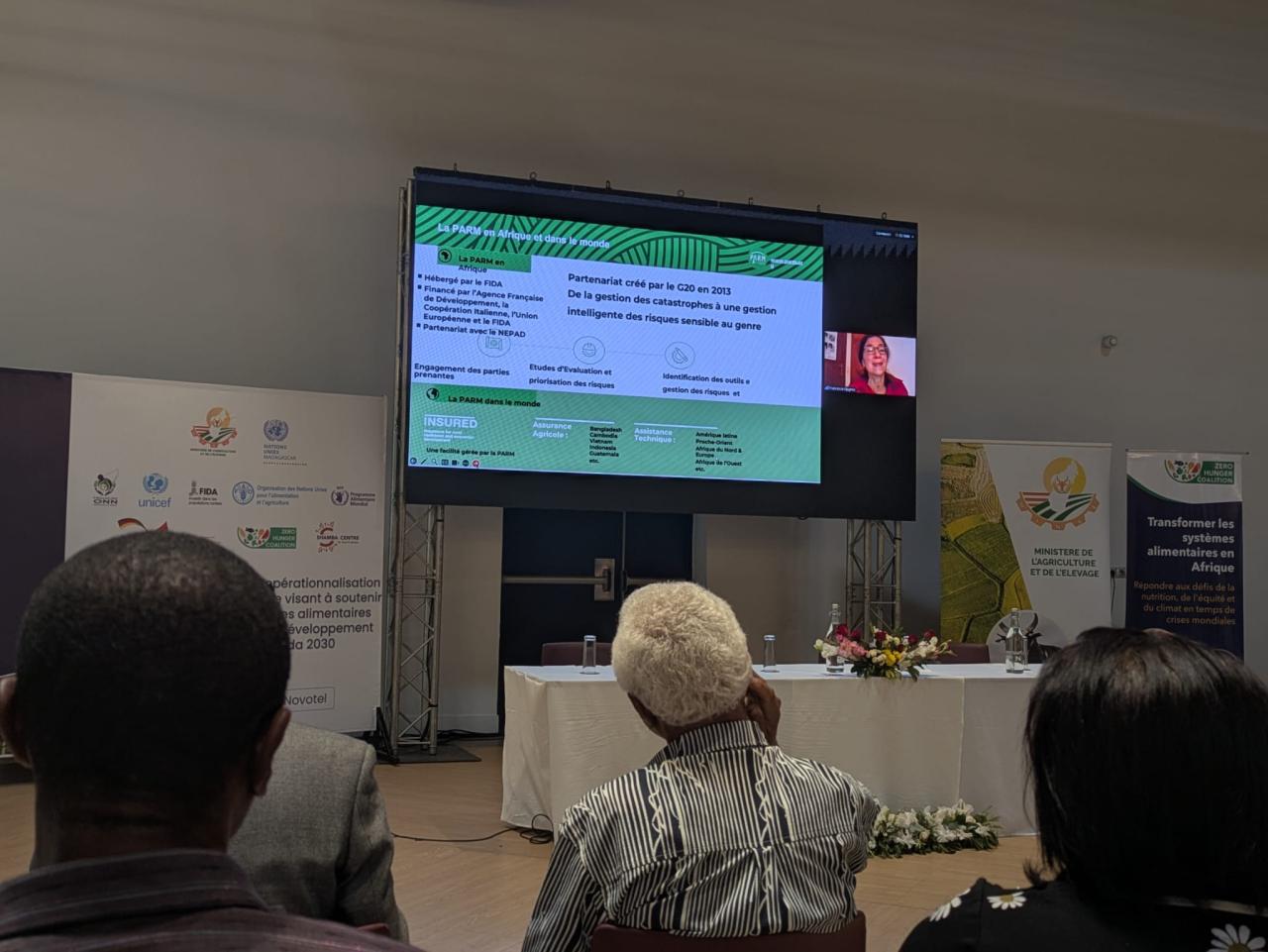
As Ms Nugnes noted, “By reducing risks and reinforcing value chains, PARM seeks to encourage public and private investment and increase resilience. This contributes to the fight against poverty, hunger and malnutrition, especially in the rural zones of Madagascar.”
Axis 3: How the private sector contributes to sustainable solutions
A representative from Symabio discussed the activities of the group in promoting sustainable agricultural practices. With the support of the government, Symabio and its 80 members have cultivated crops on land reserved for organic farming and agroecology since 2011. To ensure international recognition, Symabio uses international norms to certify its products.
As noted the Symabio representative, “These efforts underscore a strong engagement for a sustainable and inclusive agriculture while consolidating Madagascar as a major player in organic agriculture and in preparing its supply chain to the challenges of climate change.”
Announcing the results from the working groups
Each of the three working groups presented the outcomes from their sessions. For each of the three axes in the National Roadmap, the working group defined the programmes, activities, indicators and stakeholders.
For example, in Axis 1 which focuses on healthy diets, the action plan calls for the promotion of aquaculture. This will be achieved through training and technical assistance for farmers as well as nutrition education to help consumers understand the benefits of eating fish. Multiple stakeholders have agreed to participate, including MPEB, FAO, GIZ, Agrival, APDRA and several cooperatives.
Pascal Basubi Watanga, from the Democratic Republic of the Congo, participated in the working group on Axis 1, and found links between his work and the activities underway in Madagascar. “When discussing the activities and the indicators, we [delegation from the DRC] raised new points based on our national strategy and also noted activities that we could copy from Madagascar. As for the stakeholders involved, we realised who could be involved where, as we have similar stakeholders in our country and we could apply the same approach,” he noted.
An academic from the University of Antananarivo, Arsène Jules Mbolatianarizao Randrianariveloseheno, participated in working group 2 which focuses on governance issues. He noted that despite the close links between the University and the Ministry of Agriculture and Livestock, “a big issue we face as a research centre is finding ways to share our data and evidence with civil society and farmers.”
And in the news
Following yesterday’s press conference, several articles appeared in the news. They focused on the activities of the Zero Hunger Coalition and its platform for South-South dialogue.
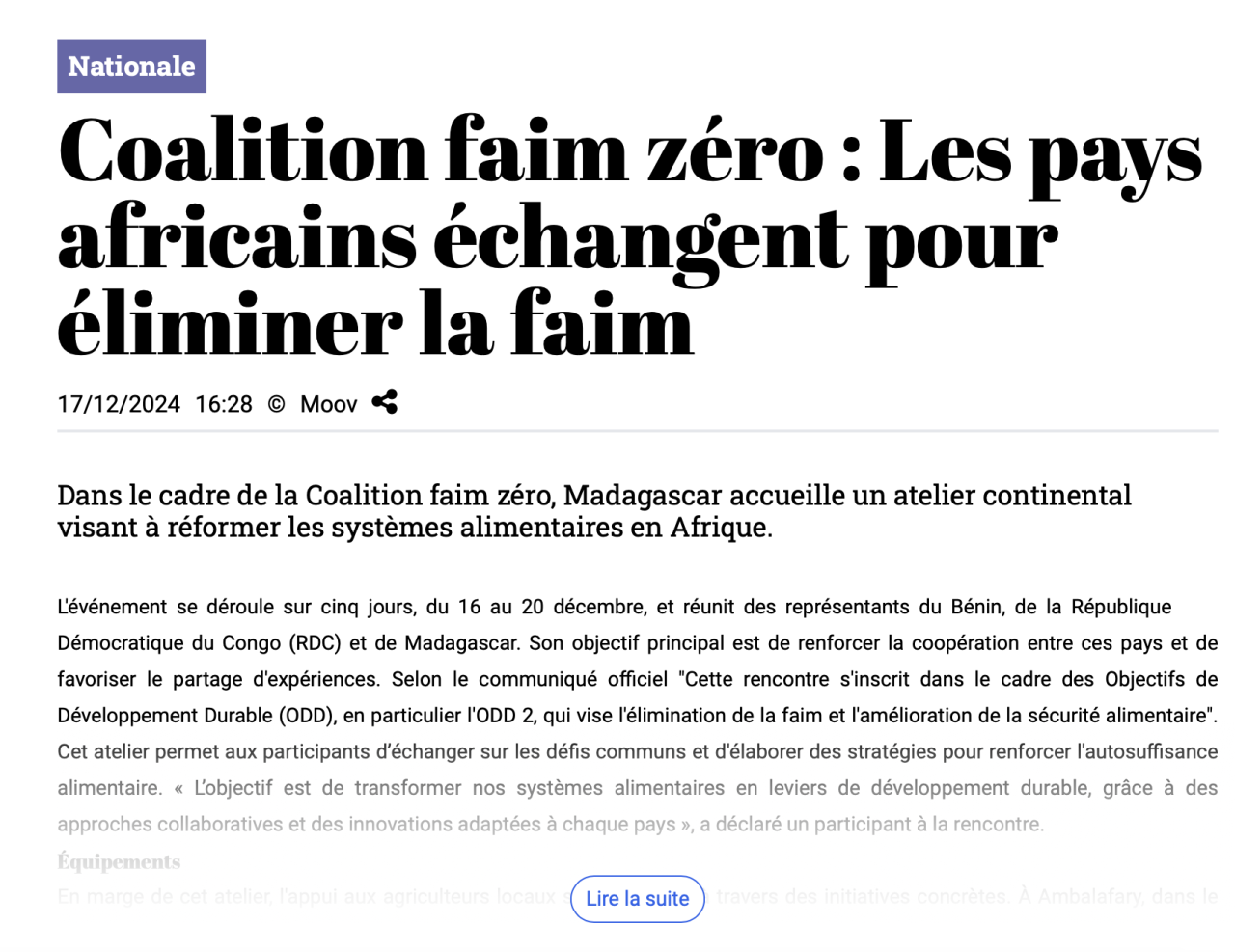
From MOOV
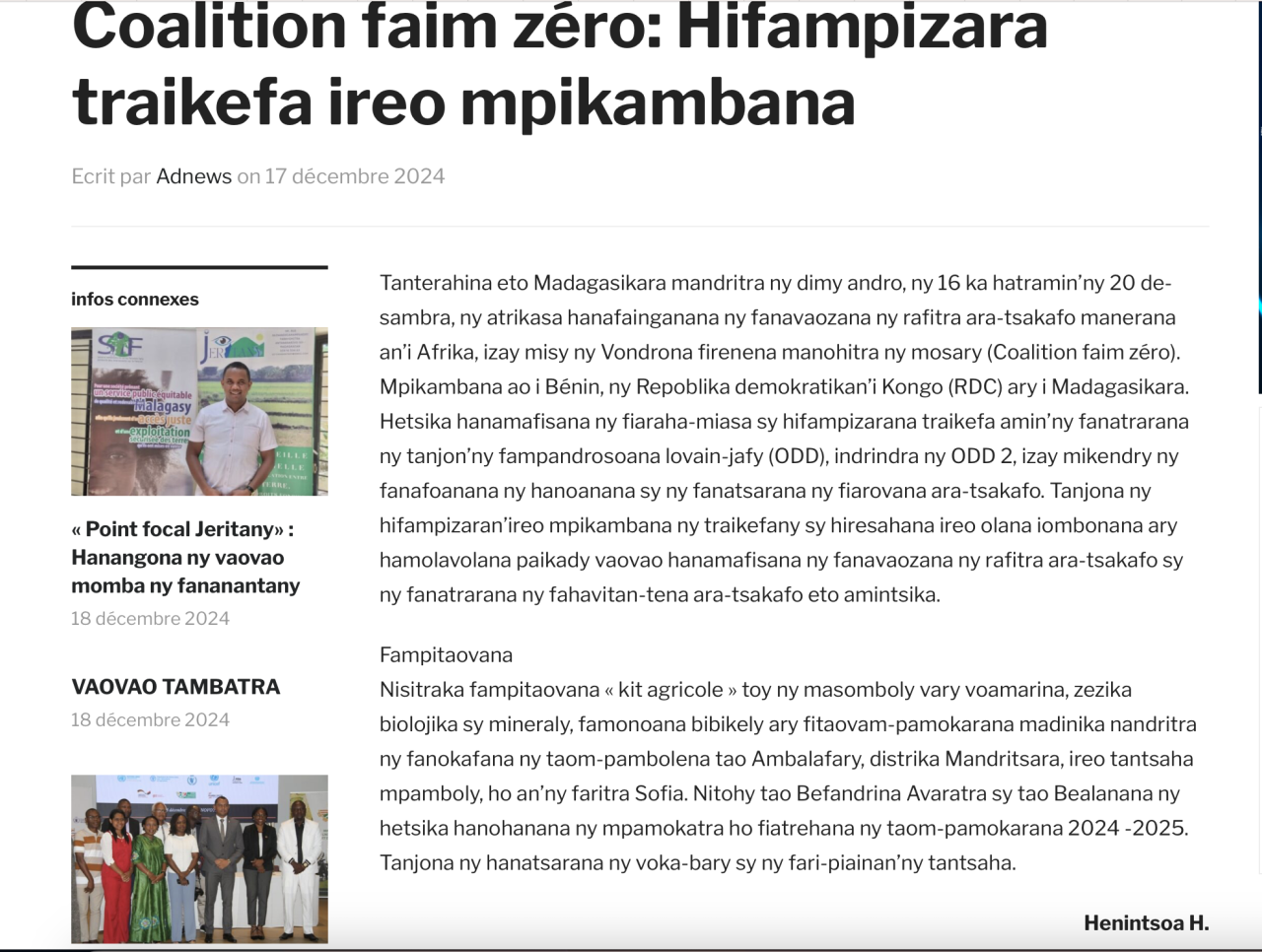
From News Mada

